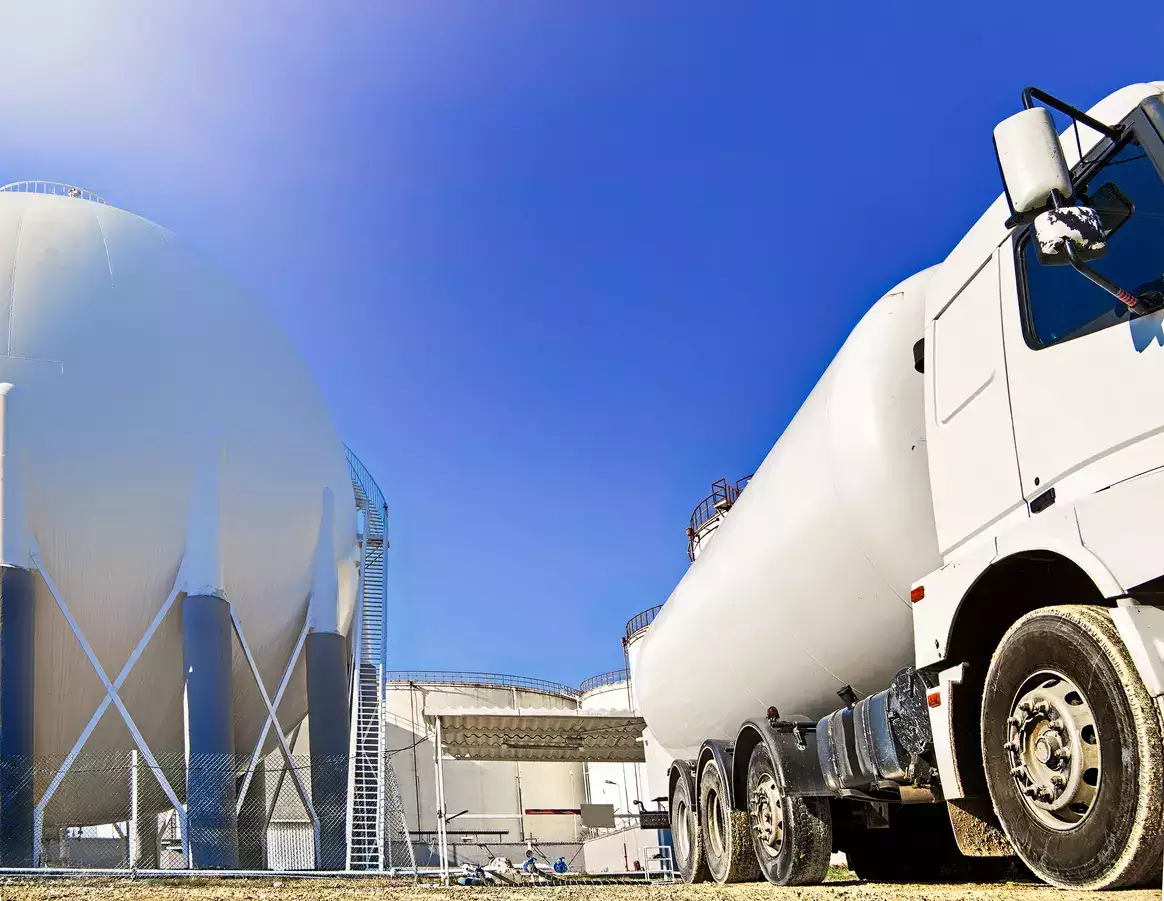 Heavy-duty trucks contribute significantly to urban pollution.
Heavy-duty trucks contribute significantly to urban pollution. The Indian Auto LPG Coalition (IAC) is urging India to adopt liquefied petroleum gas (LPG) for heavy-duty trucks, following trials by Belgian haulier OneEagle. This initiative aims to address India's growing air pollution and dependence on imported crude oil, promoting sustainable transportation and energy security. The partnership between OneEagle and addvantage Global involves testing LPG fuel systems in MAN and DAF trucks, with real-time data collection on emissions and cost savings. The IAC emphasizes the urgency of transitioning to cleaner fuels, especially given India's projected growth in road freight.
Autogas fuel system
The IAC advocates for India to emulate OneEagle's move towards LPG-powered trucks. This shift aligns with global efforts to reduce greenhouse gas emissions and combat climate change. OneEagle, operating 145 heavy-duty trucks, is partnering with addvantage Global to trial the Autogas fuel system in their vehicles. The trial will take place in the Benelux region and will involve MAN and DAF trucks. Onboard telematics will monitor emission reductions and cost savings throughout the testing period.
Heavy-duty trucks contributing to air pollution
Heavy-duty trucks contribute significantly to urban pollution. Adopting cleaner fuels like LPG is crucial for mitigating their environmental impact. In India, medium- and heavy-duty trucks account for 40% of total road transportation emissions, despite representing only 2% of vehicles. Road freight is expected to quadruple by 2050 due to increasing urbanization and population growth, further exacerbating the issue.
Continued dependence on diesel trucks could cost India over USD 1 trillion in crude oil imports by 2050. This reliance also contributes to significant public health costs associated with air pollution. Trucks, comprising just 3% of the vehicle fleet, are responsible for over 53% of particulate matter emissions. Transitioning to alternative fuels like LPG offers a crucial solution to these air quality challenges.
Zero Emission Trucks
Zero Emission Trucks (ZETs) are presented as a viable alternative. They offer reductions in air pollution and operational costs, enhancing industrial competitiveness while supporting public health and climate goals. Policymakers are encouraged to utilize successful incentives from the electric vehicle sector to promote ZET adoption. A collaborative effort between the private and public sectors is needed to develop manufacturing capabilities and the necessary charging infrastructure for a robust ZET ecosystem.
“IAC strongly believes that embracing LPG technology in heavy-duty trucks is not just an opportunity but a necessity for India. By following the example set by Belgian haulier, India can lead in sustainable transportation, improve urban air quality, enhance energy security, and combat climate change effectively. We urge all stakeholders, government, industry leaders, and consumers, to collaborate towards this much-needed transition for a healthier and more sustainable future,” said Suyash Gupta, Director General, Indian Auto LPG Coalition.
Auto LPG technology in heavy-duty vehicles
India's major cities, particularly the National Capital Region, face severe pollution levels, largely attributed to emissions from conventional heavy-duty vehicles. Commercial vehicles are a significant source of particulate matter and nitrogen oxides in urban air, according to recent studies. Adopting Auto LPG technology, which emits fewer pollutants than traditional diesel engines, is a vital step towards cleaner air and improved public health in India.
Energy security is crucial for India as it aims to reduce its dependence on fossil fuels. Transitioning to alternative fuels like Auto LPG diversifies the energy mix and enhances resilience against fluctuations in global oil prices. Adopting cleaner technologies aligns with global efforts to reduce greenhouse gas emissions and adhere to international climate commitments.
Indian policymakers are urged to prioritise policies that encourage alternative fuel adoption in the transportation sector. Incentives for Original Equipment Manufacturers (OEMs) to invest in sustainable solutions are essential. Supporting research and development in alternative fuel technologies will enable OEMs to introduce heavy-duty truck variants powered by cleaner fuels. The IAC stresses the importance of collaboration among all stakeholders for a successful transition.
